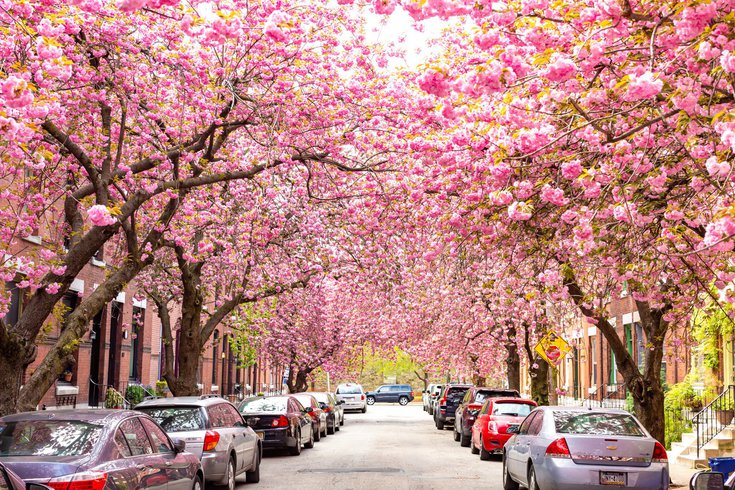
February 14, 2023
 Thom Carroll/For PhillyVoice
Thom Carroll/For PhillyVoice
A recent study from the U.S. Forest Service found that the more trees planted in a neighborhood, the longer its residents live.
Philadelphia is a city filled with lush greenery — depending on where you live. While communities across the northwest or surrounding Fairmount Park see dozens of trees each day, other parts of the city lack an adequate tree canopy, which can make residents more likely to experience violent crime, depression and, in some cases, a shorter lifespan.
A recent study conducted by the U.S. Forest Service found that the more trees that were planted in a given neighborhood, the longer its residents lived. Researchers examined 30 years of work by Friends of Trees, a nonprofit organization based in Portland, Oregon. For three decades, the organization planted roughly 50,000 trees around the city — and for every 100 trees planted, there was roughly one fewer non-accidental death per year.
"Urban trees are an essential part of our public health infrastructure, and they should be treated as such," Geoffrey Donovan, the researcher who led the study, told The Washington Post.
Larger trees, and often older trees, were associated with greater reductions in mortality, the study found. As trees grow, their leaf area increases, allowing them to better absorb air pollution, regulate temperatures and decrease noise.
The researchers note that the study's findings are consistent with previous research indicating that larger trees are associated with fewer prescriptions for cardiovascular disease and mood disorders.
The study adds to a growing list of benefits associated with exposure to greenery, particularly in urban environments. A study by researchers at the University of Pennsylvania found that adding greenery to vacant city lots can improve the mental health and wellness of its surrounding residents and the community at large.
Penn researchers also found a 29% decrease in gun violence near dressed-up lots. Their findings suggest remediating vacant and trash-filled lots with trees and greenery can reduce crime in the city by 13%, and reduce perceptions of crime by 37%.
Previous studies have found that having more street trees can lower residents' risk of heart attack, stroke or other life-threatening illnesses. Planting street trees is also associated with lower risk of asthma in children. The use of community gardens has been found to improve social cohesion among residents and can reduce stress.
As the city's tree canopy — defined as the branches, leaves and stems that cover the sky when viewed from below — declined by 6% between 2008 and 2018 as the result of storm damage and development, community gardens are being lost to sheriff's sales and public green spaces are limited. Still, there are plenty of ways that environmentally-cautious Philadelphians can help improve their neighborhoods' tree canopies.
PHS hosts more than 80 tree tenders groups, which plant trees throughout the city each year. The program seeks to increase the city's tree canopy and get residents involved in improving the environment around them.
The Parks and Recreation Department provides free street trees to residents looking to add some greenery along sidewalks and other public rights-of-way in their communities. Residents can request trees using this form. Tree planting typically occurs from mid-April to mid-June and again from mid-October to mid-November.
For those looking to spruce up their own backyards, the city also offers yard trees at giveaway events and for purchase for use on private property through TreePhilly, and initiative through Parks and Recreation and the Fairmount Park Conservancy.